Hospitality redundancies: How many restaurant and pub jobs have been lost during the pandemic?

Many of the UK’s biggest restaurant and pub chains have been forced to make redundancies during the pandemic, as months of lockdowns and Covid restrictions on capacity decimated hospitality trading.
Trade body UK Hospitality warned in November close to 600,000 hospitality jobs had already been lost, with the sector – along with the retail industry – one of the worst impacted during the coronavirus crisis.
With tens of thousands currently on furlough, the number of job losses could jump yet again once the government wage subsidy comes to an end.
Many casual dining chains were struggling before Covid struck, due to changing consumer habits and a saturated market, and the pressure of the pandemic has tipped struggling firms over the edge.
Here are the major chains that have made hospitality redundancies during the pandemic so far
Carluccio’s
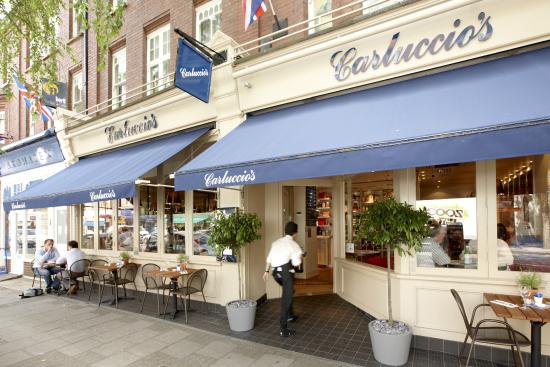
The Italian restaurant group was one of the first well-known high street chains to enter administration during the pandemic.
In May, it was bought out of administration by the owner of Giraffe and Ed’s Easy Diner, resulting in the loss of more than 1,000 jobs
In total 40 Carluccio’s restaurants across the UK were set to close and 1,019 jobs were cut, administrators FRP Advisory said.
Around 800 employees were transferred to new owner Boparan Restaurant Group, which bought the remaining 30 sites in the UK. It also snapped up the Caluccio’s restaurant in Dublin in a separate deal.
Cafe Rouge and Bella Italia
The owner of high street restaurant chains Cafe Rouge and Bella Italia collapsed into administration in July, resulting in 1,900 job losses.
Ninety one of Casual Dining Group’s restaurant outlets closed, farewelling 1,900 of the firm’s 6,000 staff in the process.
Casual Dining Group said that given the “extreme operating environment” it was in the best interests of stakeholders to enter administration, in a bid to allow the company to settle negotiations with landlords.
Private equity firm Epris later bought the firm out of administration.
Cote Restaurants
Cote Restaurants was bought out of administration by investment management firm Partners Group, saving 94 of the company’s 98 branches.
While all of the French-style restaurants were rescued in the deal – preserving 3,148 jobs – its Limeyard and Jackson & Rye sites were abandoned, resulting in 56 redundancies.
Byron Burger
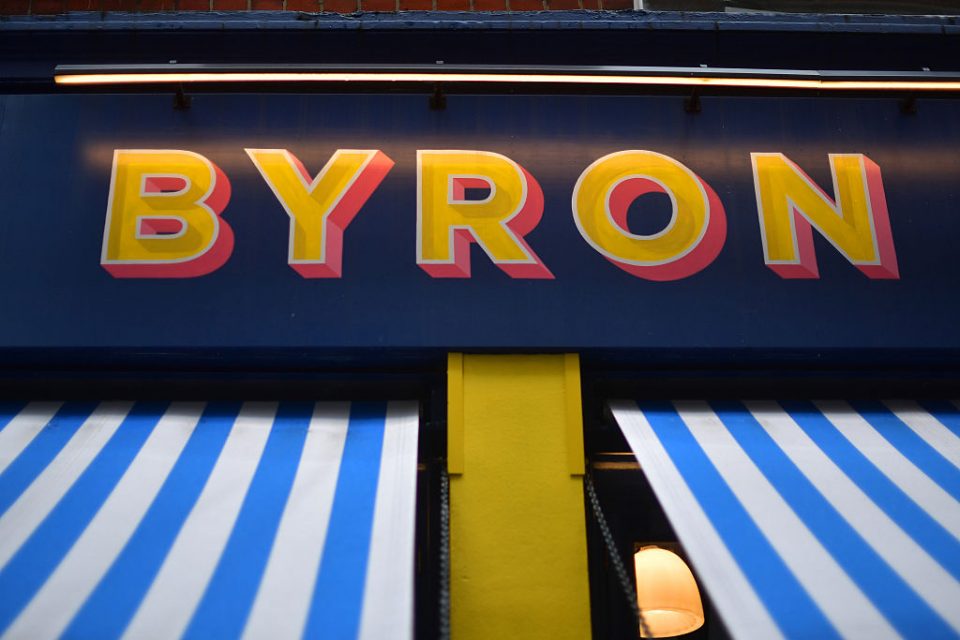
Burger chain Byron was rescued from bankruptcy in July after it was bought by Calveton UK, but half of its stores and 651 staff members were axed.
Only 20 of Byron’s 51 restaurants are still trading.
The remaining 551 employees transferred over to the new owners, administrator KPMG said in a statement.
Burger King
The chief executive of Burger King UK warned in July that the fast food chain was considering closing up to 10 per cent of its branches due to the coronavirus crisis, putting up to 1,600 jobs at risk.
Burger King boss Alasdair Murdoch said the hospitality firm could close between five to 10 per cent of its 530 restaurants in the UK, in a move that could cause between 800 to 1,600 redundancies.
Murdoch told the BBC that government help for the hospitality industry did not go far enough to offset the impact of fixed costs and plummeting sales.
JD Wetherspoon
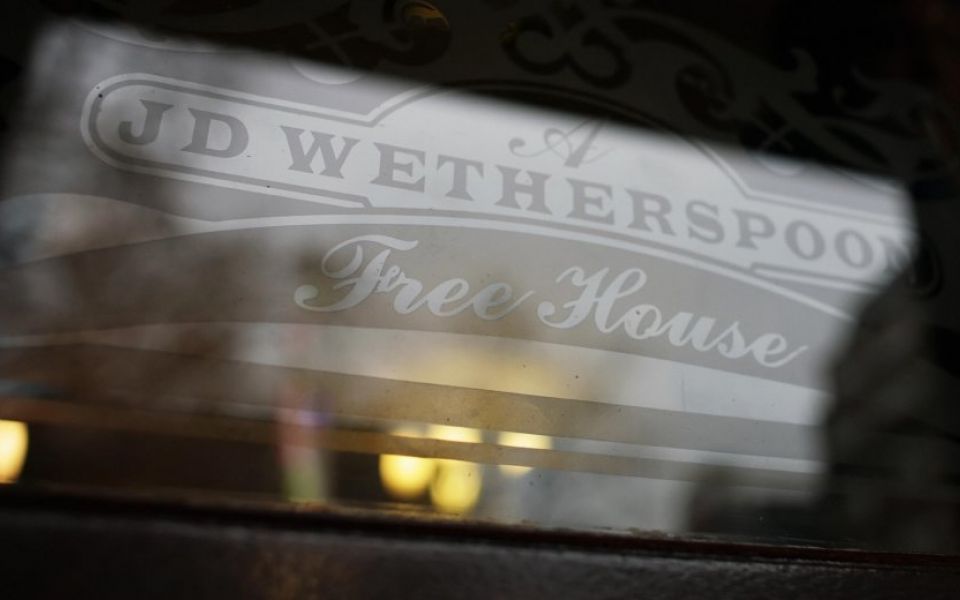
Pub chain JD Wetherspoon said last year that it planned to cut up to 130 head office jobs due to a downturn in the pub and restaurant industry during the coronavirus pandemic.
The company said that 110 to 130 head office positions had been put at risk of redundancy.
Wetherspoon blamed the cuts on a downturn in trading, a slowdown in the company’s rate of expansion and a reduction of the number of pubs operated from 955 in 2015 to 873 today.
It also cut roughly 450 jobs from six of its airport pubs due to the impact of the pandemic on travel.
The job cuts impacted staff at the chain’s pubs at Gatwick, Heathrow, Stansted, Birmingham, Edinburgh and Glasgow airports.
Read more: JD Wetherspoon revea
Johnson Service Group
Johnson Service Group, a provider of workwear and hotel and restaurant linens, cut around 1,500 jobs last year, as the impact of the coronavirus pandemic on the tourism and hospitality sector swept through the supply chain and resulted in redundancies.
The Cheshire-based firm said its hotel, restaurant and catering (HRC) division had been badly impacted by the Covid-19 crisis, due to the closure of hospitality venues and the ban on large gatherings during lockdown.
Pret a Manger
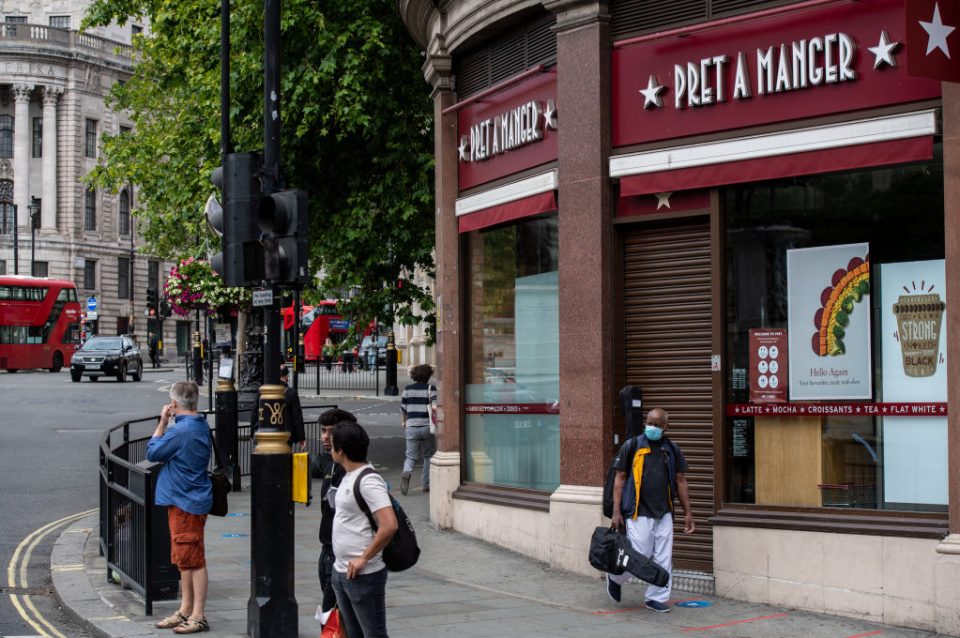
Office worker favourite Pret a Manger has cut around 3,200 jobs and closed several stores since last March as its business model was rocked by the pandemic.
Sales were pushed to the lowest levels in a decade at the beginning of the crisis, as its otarget market shifted to remote working, prompting the hospitality firm to make redundancies.
It said the impact on trade in the City of London, as office workers continue to work from home, meant its recovery had suffered a setback.
Marston’s
In October, pub chain Marston’s put 2,150 jobs at risk of redundancy following the introduction of the three-tier coronavirus restrictions that were in place before the current lockdown.
Marston’s said at the time that the introduction of the new rules was “hugely disappointing in view of a lack of clear evidence tying pubs to the recent increase in infection levels”
Mitchells and Butlers
All Bar One and Toby Carvery owner Mitchells & Butlers shuttered 20 sites for good due to the impact of the coronavirus pandemic, although it did not specify how many jobs would be affected.
The pub and restaurant chain, which also owns Harvester, O’Neills and Miller & Carter, said it had decided not to reopen the sites after assessing expected footfall and business layout.
Greene King
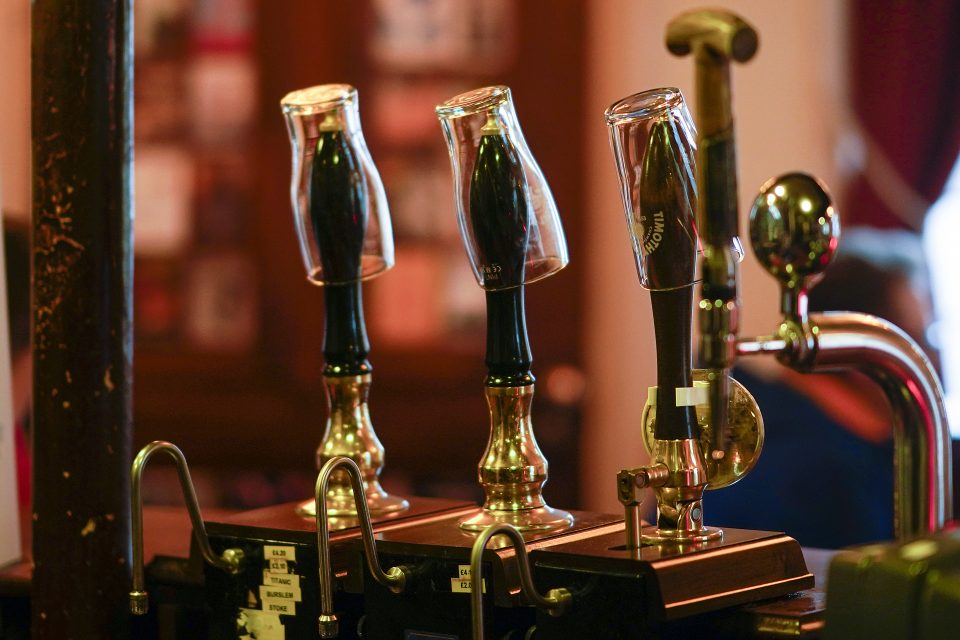
Greene King launched a redundancy consultation with 800 employees in October as it announced plans to permanently close 26 sites.
It blamed the cuts on a sharp drop in sales, which had been exacerbated by the 10pm curfew on pubs that was in place at the time.
Pizza Hut
In September, Pizza Hut announced plans to close 29 restaurants in the UK, putting 450 jobs at risk, through a company voluntary arrangement.
The fast food chain joined the ranks of firms using company voluntary arrangements (CVAs) to cut rents and exit loss-making stores during the pandemic.
Pizza Express
Last year, Pizza Express’s creditors approved the restaurant chain’s restructuring programme, allowing it to close 73 sites, putting 1,000 jobs at risk.
More than 89 per cent of creditors voted for its CVA, surpassing the 75 per cent vote needed.
The majority of landlords backed the proposals, the company said.
Whitbread
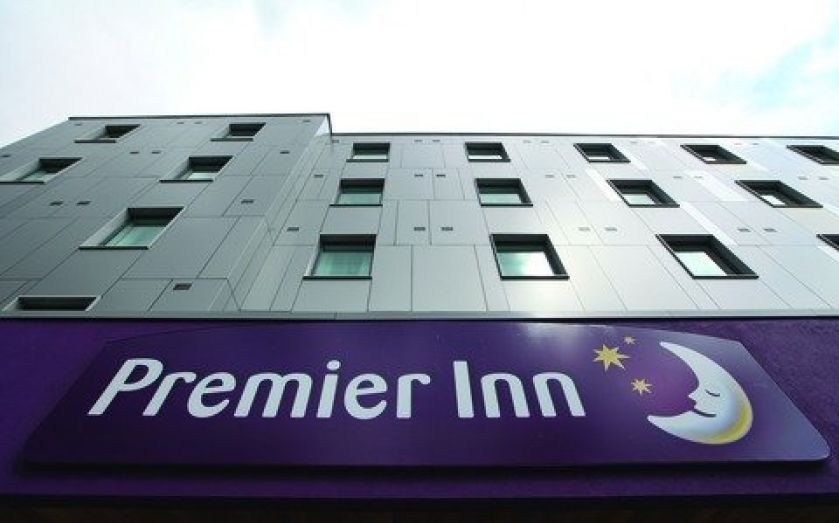
Premier Inn owner Whitbread slashed 1,500 jobs in January this year following a restructuring of its hotel and restaurant operations as sales tumbled amid lockdown restrictions.
While the restructure had led to 1,500 job cuts, it is far lower than the 6,000 it had projected in September.
The group, which also owns Beefeater and Brewers Fayre, said it had continued to take action to ensure its “cost base is reflective of the current demand environment”.
Prezzo
Italian chain Prezzo permanently closed 22 restaurants after being bought out of pre-pack administration by private equity firm Cain International.
As a result of the deal, 22 of the high street stalwart’s 178 restaurants will not reopen after lockdown. Cain said that 216 of its 2,900 jobs would be lost.
The deal came after Prezzo was forced to file for administration after failing to reach agreement with landlords on rent payments.